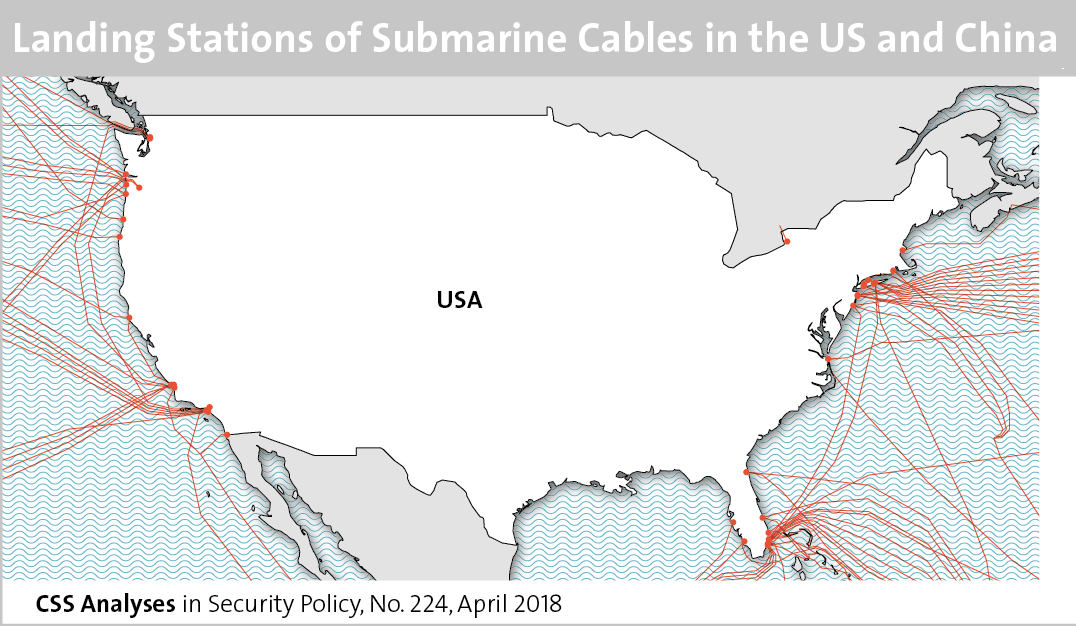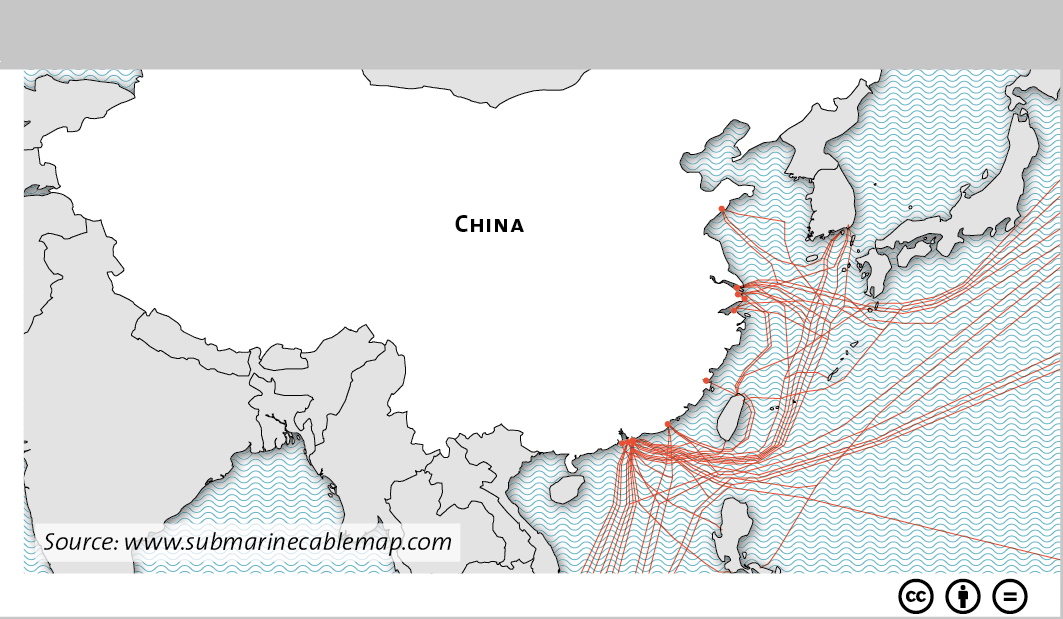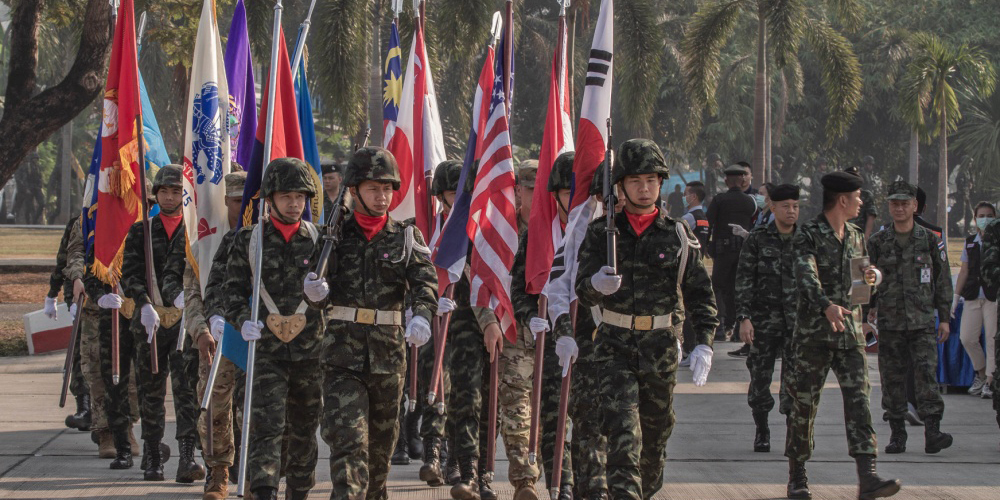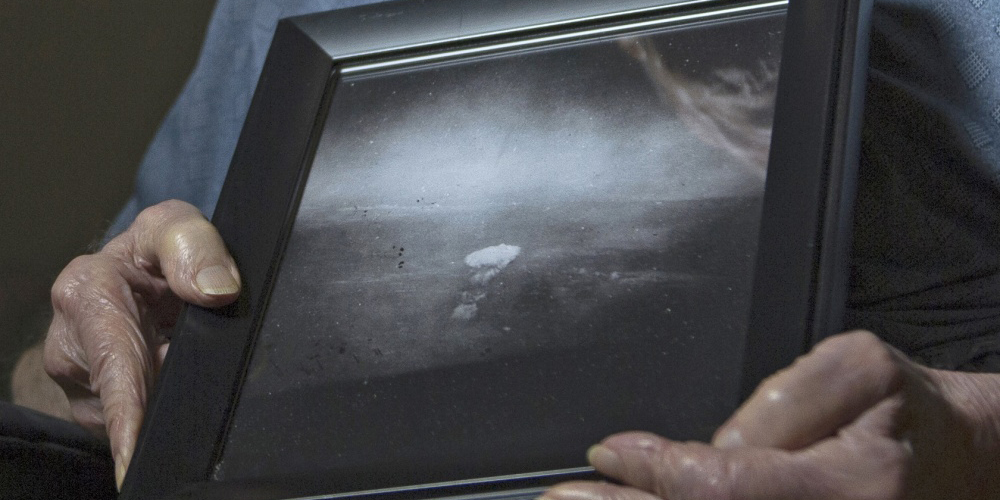
 This graphic maps the various landing stations of submarine cables in both the US and China. To find out about cybersecurity in Sino-American relations, see Marie Baezner’s CSS’ Analyses in Security Policy series here.
This graphic maps the various landing stations of submarine cables in both the US and China. To find out about cybersecurity in Sino-American relations, see Marie Baezner’s CSS’ Analyses in Security Policy series here.
Tag: United States of America
Image courtesy of Morning Brew/Unsplash.
This blog belongs to the CSS’ coronavirus blog series, which forms a part of the center’s analysis of the security policy implications of the coronavirus crisis. See the CSS special theme page on the coronavirus for more.
Stories exert power by constructing one way of understanding the world and by effectively communicating that “reality” to others. Conflict actors understand this when they seek to define the terms in which a conflict takes place, representing themselves as morally sound and the other side as illegitimate.
Building on the work of narrative mediator Sara Cobb, we analyze how the respective governments of the US and China have depicted the origins and the spread of the COVID-19 pandemic as the fault of the other side. In recent months, COVID-19 has become central to the US and China’s creation of “master narratives”. Master narratives hugely simplify the plot and characters, contain moral judgments, and form the basis for the generation and perpetuation of a conflict tale. This serves both governments in deflecting criticism away from their domestic responsibilities. Tensions have escalated between the two world powers as a result.
Image courtesy of Tech. Sgt. Brian Ferguson/DVIDS
This blog belongs to the CSS’ coronavirus blog series, which forms a part of the center’s analysis of the security policy implications of the coronavirus crisis. See the CSS special theme page on the coronavirus for more.
Various nuclear milestones in 2020 have provided important opportunities to raise awareness on the role of nuclear weapons in national security strategies, their impact on communities, the state of arms control treaties, and progress in nuclear disarmament. While the Nuclear Non-Proliferation Treaty Review Conference on its 50th anniversary was rescheduled due to the pandemic, the delay could enable member states to further engage in dialogue, seek compromises, and suggest new initiatives. Depending on when and how the conference will eventually take place, the coronavirus crisis might even bring much-needed change to conference proceedings.
 Bild: Lawrence Broadnax/DVIDS
Bild: Lawrence Broadnax/DVIDS
Dieser Blogbeitrag gehört zur Coronavirus-Blog-Reihe des CSS, die einen Teil des Forschungsprojektes zu den sicherheitspolitischen Implikationen der Corona-Krise bildet. Weitere Informationen finden Sie auf der CSS-Sonderthemenseite zur Corona-Krise.
Südostasien ist ein Brennpunkt in der strategischen Rivalität zwischen China und den USA. Was sich auf globaler Ebene abzuzeichnen beginnt, ist in dieser Weltregion bereits Realität: In einem wachsenden Konflikt konkurrieren China und die USA mit wirtschaftlichen, diplomatischen und teils militärischen Mitteln um Einflussnahme und versuchen die Machtbalance zu ihren Gunsten zu verändern. Dabei fördern sie kollidierende politische Initiativen und Ordnungsvorstellungen. Auch die Möglichkeit einer militärischen Auseinandersetzung rund um die Krisenherde im Südchinesischen Meer scheinen beide Seiten zunehmend in Kauf zu nehmen. In Südostasien verstärkt die Corona-Krise geopolitische Machtverschiebungen und politische (Neu-)Ausrichtungen.
Ever since President Donald Trump withdrew the US from the nuclear agreement with Iran in 2018, the Joint Comprehensive Plan of Action (JCPOA) has been in crisis. Tehran has taken various steps that violate the JCPOA provisions, but it is keeping the door open for their full implementation. European governments have tried to circumvent related US sanctions against Iran, at least for humanitarian supplies. This should help Iran, especially with regards to the COVID-19 pandemic. But will it be possible to prevent Iran from acquiring nuclear weapons over the long term?
On 9 July 2020, Névine Schepers, Researcher in the Team Swiss and Euro-Atlantic Security at the CSS addressed this topic in a CSS Brown Bag Webinar entitled “Corona and the Future of the Iran Nuclear Deal.”


